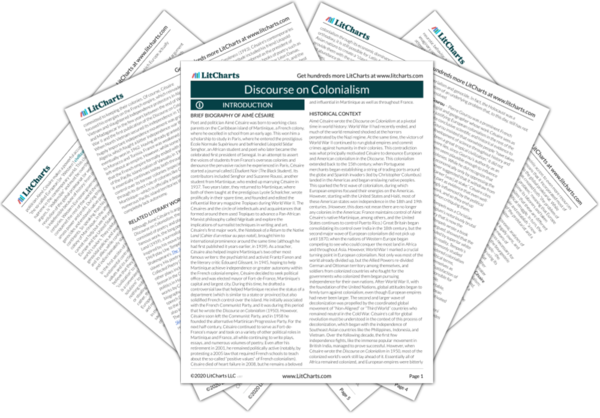By pointing out that Caillois is at once inexcusably racist and also “moderate” compared to many members of the European elite, Césaire again underlines the extent to which white supremacist perspectives are baked into the foundations of European culture. Caillois’s conclusion—that people are unequal by nature, but should be equal in society—is a common point among contemporary social scientists (although, tellingly, virtually only white ones). However, it is incoherent for two reasons. First, there is no solid evidence behind it: Caillois has no proof that white people are naturally better thinkers and scientists than nonwhite people, just like no contemporary scientist has ever been able to prove this in the several decades since. Second, it is incoherent to say that some people are
better than others by
nature, because determining what is “better” requires having certain cultural beliefs about what is desirable and undesirable. (For instance, in individualistic, capitalist societies, it may be assumed that having a higher IQ—or analytical intelligence—is inherently better, but other societies might value emotional intelligence and empathy instead.) Caillois ends up justifying colonialism by saying that Europeans know what is best for non-European people, while those people do not know what is best for themselves—which is clearly a self-serving justification for colonialism
